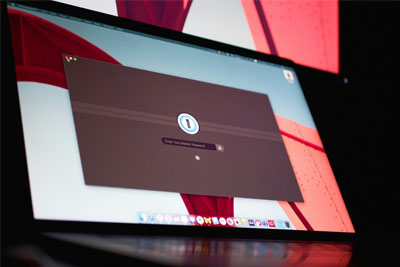A Guide to Creating the Best WiFi Password

Learn how to create strong WiFi passwords and keep freeloaders off your home network with these effective password-creation strategies and tips.

Learn how to create strong WiFi passwords and keep freeloaders off your home network with these effective password-creation strategies and tips.
No one likes their WiFi to be stolen. But that’s exactly what happens when unwanted guests jump onto your home network and take advantage of your internet plan. If your WiFi password isn’t strong enough, it could be all too easy for people outside your family to use your home WiFi without your permission.
But kicking out these freeloaders doesn’t have to be tricky; in many cases, a strong WiFi password is enough to secure your network now and for the future. Let’s break down how to create the best WiFi passwords in detail.
When you have a home WiFi network, that network is open to anyone who knows the password. That's convenient for your friends and family members who share your home network, but it also means that others can easily connect to your WiFi as well.
Every WiFi network has limits on bandwidth – the more people using your WiFi at once, the slower traffic might be for everyone online at the same time. If your WiFi network has unexpected users, like your neighbors, you could experience slower internet speeds and stuttering or lag while streaming shows or gaming online.
On top of that, the last thing you want is for someone to use your WiFi network for illegal activities. For example, someone could use your WiFi if they know the password to buy things from the dark web, surf dangerous sites, and so on. Bottom line? It’s better to keep unwanted users out of your WiFi network as much as possible, and the best way to do that is to set it up with a strong password.
Making a good WiFi password isn’t complex or tricky if you keep a few key ideas in mind. Let’s take a closer look at some WiFi password suggestions.
For starters, always make sure your WiFi network passwords include a unique combination of letters, numbers, and symbols – the more, the better! Typically, the strongest WiFi passwords are 12 characters or longer. That’s because the more characters you add, the harder it is for someone to guess your WiFi password or “brute force” it with an AI tool.
The best WiFi passwords don’t form complete words or phrases. Instead, they often appear to be jumbles of nonsensical characters: tough to remember but excellent for network security!
You should also never include your WiFi network or account username in your password. Even though this might make it easy to remember both pieces of information, the way they weaken your overall network security isn’t worth it. If your username makes up part of your password, it’ll be much easier for someone to guess that password if they have the username or vice versa.
By the same token, you should never include personal details or dates in your WiFi password. In fact, any personal information that someone can glean about you should stay out of your passwords (WiFi network and otherwise).
For instance, don’t use your birth date or middle name in your WiFi password. Anyone who knows those pieces of information will automatically be one step closer to cracking the overall passphrase, and they might try to use that information to break into other accounts under your name, like your bank account or social media accounts.
To summarize, the best WiFi passwords are:
Creating and remembering a password like this – let alone several – can be quite a challenge! That’s why you should use a password manager to store your WiFi network password and other passwords for your important accounts and information.
Password managers remember your passwords for you. Even better, many computers allow password managers to automatically input your network or other account passwords with a few button clicks. Think of password managers as improvements to writing your password down on a sticky note (which can all too easily be lost somewhere in your house). As a side benefit, password managers will even create good WiFi password ideas for you.
Once you have a password manager set up and know how to use it, get in the habit of changing your WiFi password once every 90 days or so. This is a good preventative step because it stops unwanted WiFi guests from continuing to use your WiFi network even if they luckily guess your initial password setup.
While you’re at it, build this habit for all the other passwords you use, too. Your accounts will be so much more secure if you regularly replace old passwords with new ones that are just as secure as their predecessors.
We hope you found our guide on the best WiFi password ideas helpful. Overall, it's a good idea to make a strong WiFi password as soon as you can. That's the best way to take full advantage of the lightning-fast speeds of your WiFi network, plus ensure your WiFi isn't being used for anything you might not approve of.
Of course, you need best-in-class WiFi before you can set up a password or enjoy whole-home WiFi. That's where Glo Fiber can help. Our fiber internet offerings are perfect for families of all sizes, featuring symmetrical uploads and downloads and top-notch customer service. Get in touch with us today to learn more about our fiber internet and WiFi plans!